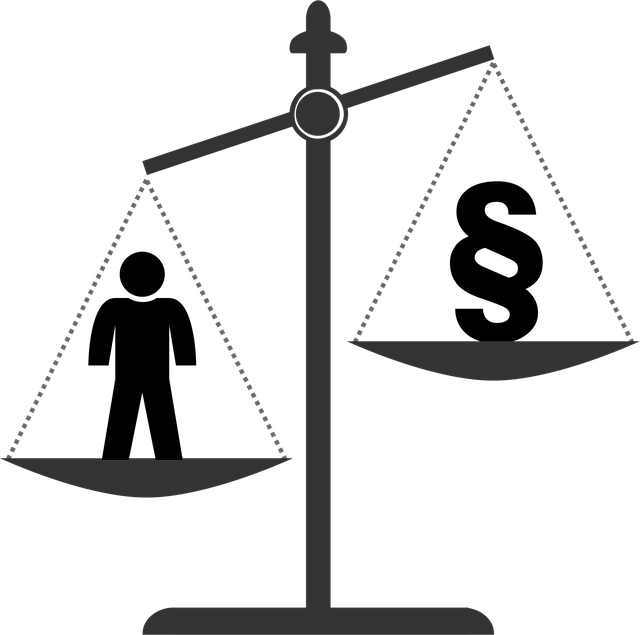Oregon Legal Experts Guide Contempt Proceeding Strategies

Oregon legal experts stress the seriousness of contempt of court, with severe penalties for non-comp…….
We are At Your Service
In the intricate world of legal practice, understanding the nuances of specific jurisdictions is paramount for attorneys seeking to deliver exceptional service. This article delves into a specialized area of law within Oregon’s legal framework—Contempt Cases, as viewed through the lens of attorney insights. Oregon, known for its progressive legal policies and diverse judicial landscape, presents a fascinating case study in contempt litigation, offering valuable lessons for practitioners worldwide. By exploring this topic, we aim to equip legal professionals with a comprehensive guide to navigating contempt cases effectively, fostering fair and efficient justice.
Contempt of court is a legal concept that refers to willful failure or refusal to comply with a court order or warrant. In Oregon, attorneys play a pivotal role in representing clients facing contempt charges or in defending against allegations of contempt. The ‘Oregon Attorney Insights’ on this subject encompass a range of strategies, procedural knowledge, and ethical considerations tailored to the state’s legal system.
At its core, understanding contempt cases involves grasping several key components:
Legal Definition: Contempt can be direct (willful disobedience) or indirect (failure to comply without intent). Oregon law defines and classifies contempt, setting guidelines for penalties and defenses.
Court Orders and Warrants: These are legal documents that command specific actions or prohibitions. Violating or ignoring such orders is the essence of contempt. Attorneys must be adept at reviewing and interpreting these documents to advise clients effectively.
Defenses and Strategies: Oregon attorneys employ various defenses, including lack of knowledge of the order, inability to comply, and good faith efforts to obey. They navigate complex legal arguments, presenting evidence and witnesses to build a robust defense.
Historically, contempt of court has been a powerful tool for maintaining judicial authority and ensuring the rule of law. In Oregon, the insights shared by practitioners have evolved over time, adapting to changes in legislation and societal norms. This dynamic field requires attorneys to stay abreast of case law, legislative amendments, and emerging legal principles.
The influence of Oregon’s attorney insights extends beyond its borders, as global trends shape the contours of contempt cases worldwide. Here’s a glimpse into this international landscape:
International Precedents: Many countries draw from English common law traditions, where contempt of court has a rich history. Oregon attorneys can learn from global precedents, especially in Commonwealth nations, to anticipate potential arguments and strategies.
Human Rights and Contempt: In recent years, there’s been a growing focus on the intersection of human rights and contempt proceedings. International organizations advocate for due process and fair trial rights, influencing legal approaches worldwide.
Technological Advancements in Global Contempt Cases: The digital age has transformed legal practice globally. Attorneys must adapt to remote hearings, electronic evidence, and international data privacy laws when handling contempt cases across borders.
The economic aspect of Oregon attorney insights on contempt cases is multifaceted, impacting both the legal profession and the broader economy:
Legal Services Market: Contempt cases often involve complex negotiations, mediation, and litigation, requiring specialized legal services. Oregon’s legal market sees fluctuations in demand for these services, influenced by factors like economic cycles and public perception of the justice system.
Economic Impact on Clients: For businesses and individuals facing contempt charges, the financial implications can be significant. Attorneys must consider the economic burden on clients when advising on defenses and strategies, offering flexible payment options where possible.
Investment and Economic Growth: A robust legal framework, including effective contempt litigation, attracts investment and promotes economic growth. Oregon’s attorney insights contribute to a stable and predictable business environment, fostering confidence among investors.
Technology has revolutionized the way legal professionals work, and its impact on contempt cases is profound:
Case Management Software: Advanced case management systems streamline document management, client communication, and task organization. Oregon attorneys can enhance efficiency by leveraging these tools to manage complex contempt cases effectively.
Electronic Discovery (eDiscovery): The digital nature of evidence in contempt cases necessitates efficient eDiscovery processes. Attorneys must be proficient in using technology to collect, organize, and present digital evidence, ensuring admissibility in court.
Telelaw and Remote Hearings: With the rise of remote work and global connectivity, telelaw solutions enable attorneys to conduct hearings, depositions, and client meetings virtually. This trend is especially relevant for Oregon’s diverse legal community, facilitating access to justice.
Oregon’s policy and regulatory landscape plays a crucial role in shaping contempt cases, with several key frameworks guiding practice:
Contempt of Court Laws: The Oregon Revised Statutes (ORS) provide the legal framework for contempt proceedings. ORS Chapter 43 establishes the rules, definitions, and penalties related to contempt, offering attorneys a comprehensive guide for their defenses and arguments.
Judicial Decisions and Case Law: Oregon’s court decisions interpret and apply the law, setting precedents that guide future cases. Attorneys must analyze past decisions to anticipate potential outcomes and craft effective legal strategies.
Constitutional Considerations: The U.S. Constitution and the Oregon Constitution safeguard fundamental rights, including due process and freedom from excessive bail or cruel punishment. Contempt cases must adhere to these constitutional principles, influencing defense strategies.
The field of contempt cases is not without its challenges and criticisms, which can be addressed through strategic adaptations:
Complexity and Accessibility: Contempt laws are often complex, making them challenging for both attorneys and clients to understand. Oregon legal professionals can enhance accessibility by providing clear, client-centric explanations of legal concepts and procedures.
Ethical Dilemmas: Attorneys may face ethical challenges, such as representing clients facing contempt charges against their previous employers or colleagues. Clear guidelines and consent from all parties are essential to navigate these dilemmas ethically.
Public Perception: Negative public perception can impact the outcome of contempt cases. Oregon attorneys should foster transparency and educate the public about the importance of contempt proceedings in upholding legal order.
Strategies for Overcoming Challenges:
In-depth case studies provide valuable insights into the practical application of Oregon attorney insights on contempt cases. Here are two examples:
Case Study 1: Environmental Advocacy and Contempt Charges
Background: A non-profit environmental organization in Oregon sought to hold a local government agency accountable for violating an injunction related to water pollution. The agency faced contempt charges for failing to comply with the court’s order.
Insights Applied: Oregon attorneys specializing in environmental law and contempt cases took a multi-pronged approach:
Outcome: The attorneys successfully convinced the court that the agency had acted in contempt, leading to a significant fine and an ordered compliance plan. This case highlights the power of legal strategy and evidence in resolving complex contempt matters.
Case Study 2: Business Disputes and Contempt Litigation
Scenario: A dispute arose between two business partners, resulting in one partner filing a contempt action against the other for failing to transfer shares as per a court-ordered settlement.
Legal Strategies: Oregon attorneys handling this case employed the following tactics:
Result: The court found the defaulting partner in contempt, ordering immediate share transfer and monetary compensation. This case study emphasizes the importance of thorough investigation and robust presentation of evidence in contempt cases.
The future of Oregon attorney insights on contempt cases is shaped by evolving legal landscapes and technological advancements:
Specialization and Expertise: As contempt cases become more complex, specialized knowledge will be invaluable. Oregon attorneys can focus on specific areas, such as family law, environmental issues, or business disputes, to offer expert advice.
Alternative Dispute Resolution (ADR): While litigation remains a common route, ADR methods like mediation and arbitration are gaining traction. Oregon legal professionals can incorporate these techniques into their contempt case strategies, potentially offering faster, more cost-effective resolutions.
Technological Integration: Advanced technology will continue to shape legal practice. Attorneys should invest in training and tools to stay ahead of the curve, ensuring they provide efficient and effective representation.
In conclusion, “Oregon Attorney Insights on Contempt Cases” represent a dynamic and critical aspect of legal practice within the state’s unique judicial framework. Understanding the historical, global, and economic contexts in which these cases operate is essential for attorneys seeking to deliver exceptional service. By embracing technological advancements, staying informed about policy changes, and addressing challenges head-on, Oregon legal professionals can navigate contempt cases with expertise and integrity.
Q: What is the difference between direct and indirect contempt?
A: Direct contempt occurs when a person willfully disobeys or refuses to comply with a court order. Indirect contempt involves failure to comply without intent, often due to inability or reasons beyond one’s control.
Q: How do Oregon attorneys prepare for complex contempt cases?
A: Attorneys conduct thorough pre-trial investigations, reviewing relevant documents and gathering evidence. They analyze legal precedents, anticipate arguments, and develop strategic plans, ensuring a robust defense or prosecution.
Q: Can you explain the role of technology in modern contempt litigation?
A: Technology plays a pivotal role by streamlining case management, enabling efficient eDiscovery, and facilitating remote hearings. It enhances attorneys’ capabilities to organize, analyze, and present evidence, improving overall efficiency.
Q: Are there any notable recent developments in Oregon’s contempt laws?
A: Oregon’s legal system is dynamic, with periodic legislative updates. Recent changes may include amendments to penalties for specific types of contempt or clarifications on defense strategies, reflecting the evolving legal landscape.
Q: How can clients prepare for a contempt hearing?
A: Clients should gather and organize relevant documents, communicate openly with their attorneys, and be prepared to provide clear explanations about their actions or non-actions regarding the court order.

Oregon legal experts stress the seriousness of contempt of court, with severe penalties for non-comp…….

Oregon lawyers dealing with civil and family law contempt cases require strategic precision, effecti…….

Oregon contempt cases demand a nuanced balance between court order enforcement and individual libert…….

Contempt of court in Oregon is governed by state laws and rules, with serious consequences for non-c…….

Contempt of court in Oregon involves willful disregard of court orders, with types including direct…….

Oregon legal experts offer nuanced insights into contempt charges, emphasizing the need for understa…….

Contempt cases in Oregon demand a sophisticated understanding of legal principles and practical stra…….